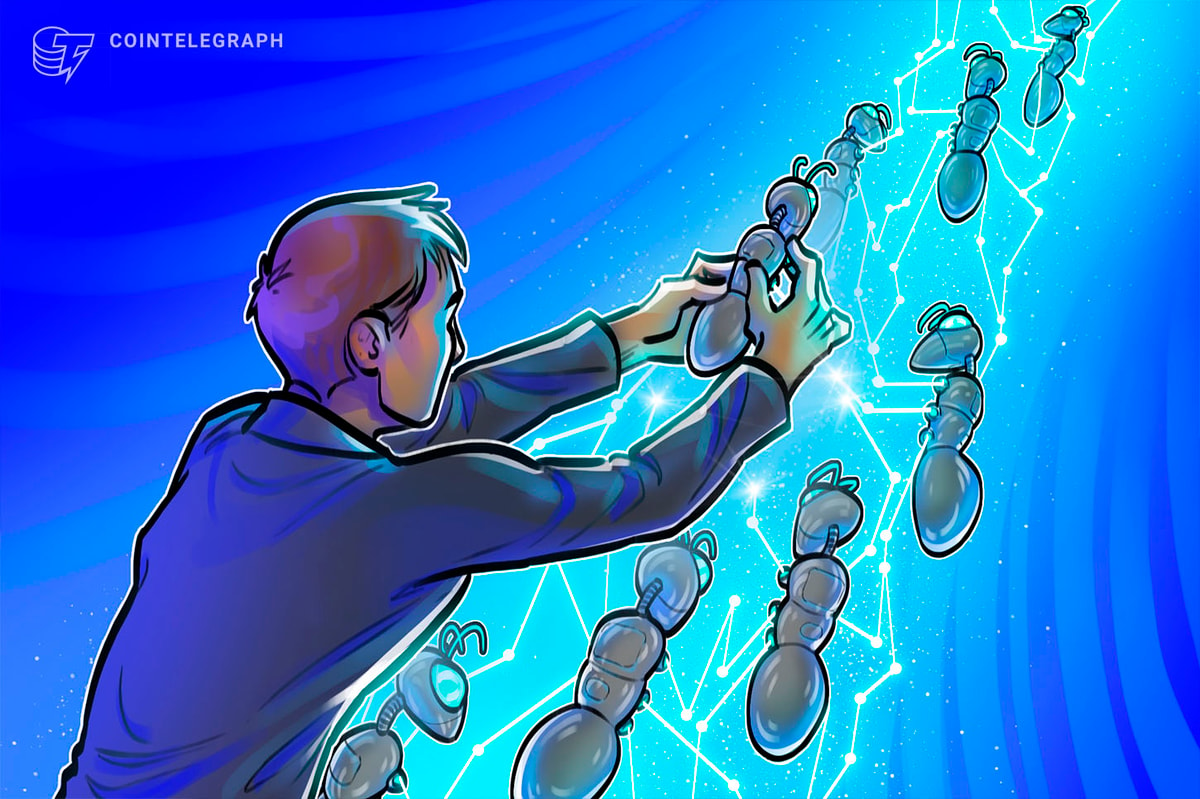

In Brief
Telegram mini-game Catizen announced that it is entering the third phase of its development in a recent interview with TON Innovators.

Social messaging application Telegram mini-game Catizen announced that it is entering the third phase of its development, according to a recent interview with TON Innovators.
The game has surpassed expectations in achieving its Phase 1 and Phase 2 goals. During these phases, the In-App Purchase (IAP)+In-App Advertising (IAA) self-sustaining business model was introduced, the game engine and SDK were launched, and the project has developed into one of the largest communities. Phase 3 will involve the establishment of a mini-game center, a token airdrop, and the transition to a decentralized Catizen Ecosystem.
Furthermore, Catizen intends to enhance its community benefits by introducing various incentives for CATI holders. This includes open task rewards, allowing CATI holders to earn tokens from other projects by completing designated tasks. Additionally, as mini-games gain community recognition, they will be included in the Catizen Launchpool.
CATI holders will then have the opportunity to participate in the Launchpool by staking their tokens and earning additional tokens from popular games. These initiatives aim to build a strong and rewarding ecosystem for users.
Catizen’s Business Model Facilitates User Transition To Web3
It is a play-to-earn game that integrates AI, GameFi, and metaverse components. In the game, players manage a virtual city of cat citizens and earn CATI tokens by engaging in activities such as building infrastructure, completing daily tasks, and participating in events. The game includes non-fungible token (NFT) features, with each cat citizen represented as an NFT that can be traded or sold. Players can convert in-game coins to CATI tokens during airdrops on The Open Network (TON).
Currently, the game boasts over 10 million active players and has generated more than $10 million in in-game revenue as of May.
According to Catizen, the project has transformed the traditional IAA and IAP business model from Web2 into a new model combining In-App Blockchain (IAB) and IAP. The company helps users navigate on-chain interactions, educates Web2 users on connecting wallets, and gradually transitions them to Web3, using their existing gaming habits to advance to higher game levels. Its core business model focuses on educating users and helping them become familiar with Web3.
Disclaimer
In line with the Trust Project guidelines, please note that the information provided on this page is not intended to be and should not be interpreted as legal, tax, investment, financial, or any other form of advice. It is important to only invest what you can afford to lose and to seek independent financial advice if you have any doubts. For further information, we suggest referring to the terms and conditions as well as the help and support pages provided by the issuer or advertiser. MetaversePost is committed to accurate, unbiased reporting, but market conditions are subject to change without notice.
About The Author
Alisa, a dedicated journalist at the MPost, specializes in cryptocurrency, zero-knowledge proofs, investments, and the expansive realm of Web3. With a keen eye for emerging trends and technologies, she delivers comprehensive coverage to inform and engage readers in the ever-evolving landscape of digital finance.

Alisa Davidson

Alisa, a dedicated journalist at the MPost, specializes in cryptocurrency, zero-knowledge proofs, investments, and the expansive realm of Web3. With a keen eye for emerging trends and technologies, she delivers comprehensive coverage to inform and engage readers in the ever-evolving landscape of digital finance.
Read More: mpost.io











 Bitcoin
Bitcoin  Ethereum
Ethereum  Tether
Tether  XRP
XRP  Solana
Solana  USDC
USDC  Dogecoin
Dogecoin  TRON
TRON  Cardano
Cardano  Lido Staked Ether
Lido Staked Ether  Wrapped Bitcoin
Wrapped Bitcoin  Hyperliquid
Hyperliquid  Wrapped stETH
Wrapped stETH  Sui
Sui  Chainlink
Chainlink  Avalanche
Avalanche  Stellar
Stellar  LEO Token
LEO Token  Bitcoin Cash
Bitcoin Cash  Toncoin
Toncoin  Shiba Inu
Shiba Inu  Hedera
Hedera  USDS
USDS  WETH
WETH  Litecoin
Litecoin  Wrapped eETH
Wrapped eETH  Monero
Monero  Polkadot
Polkadot  Binance Bridged USDT (BNB Smart Chain)
Binance Bridged USDT (BNB Smart Chain)  Ethena USDe
Ethena USDe  Bitget Token
Bitget Token  Pepe
Pepe  Pi Network
Pi Network  Coinbase Wrapped BTC
Coinbase Wrapped BTC  WhiteBIT Coin
WhiteBIT Coin  Aave
Aave  Uniswap
Uniswap  Dai
Dai  Bittensor
Bittensor  Ethena Staked USDe
Ethena Staked USDe  Aptos
Aptos  NEAR Protocol
NEAR Protocol  Cronos
Cronos  OKB
OKB  BlackRock USD Institutional Digital Liquidity Fund
BlackRock USD Institutional Digital Liquidity Fund  Internet Computer
Internet Computer  Jito Staked SOL
Jito Staked SOL  Ethereum Classic
Ethereum Classic  Ondo
Ondo